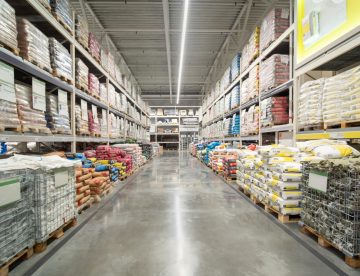
In construction, quality isn’t a luxury – it’s the foundation of safety, trust and long-term value. Few areas demonstrate this more clearly than roofing. According to Local Authority Building Control, roofing is the second most common source of construction defects in the UK, accounting for 15% of all issues reported in 2024.
Defects in roofing can compromise livelihoods, put residents at risk, damage building integrity and erode public confidence. In today’s climate of tighter regulation and heightened scrutiny, quality in roofing matters more than ever. Read this week’s blog to find out more and download our new Impact Report on Quality in Roofing.

Cyber security threats are escalating across the UK, with more than 40% of businesses and 30% of charities reporting breaches over the past 12 months. Even household names like Marks & Spencer, Co-op and Harrods were recently forced to suspend online operations to contain cyber-attacks.
This surge highlights that cyber-crime is happening right now and it could affect anyone. For organisations, the consequences can be particularly severe, including financial losses, reputational damage and operational disruption. Take a look at this week’s blog to find out what this means for our industry and what Sheriff Construction is doing to protect your data.

When someone new arrives at your construction site, welcoming them and introducing them to the site in friendly, well-organised manner is essential.
Regardless of whether they are a new contractor, supplier, professional colleague or any other visitor, the welcome you provide is not just a matter of making a good first impression but also key to maintaining a safe, efficient and compliant site. Read this week’s blog for five tips for making this process seamless.

In a single year, the UK generates 67.8 million tonnes of non-hazardous Construction and Demolition waste, a figure that represents 62% of the nation’s total waste output.
This waste is made up of all kinds of products – concrete bricks, tiles, ceramics, insulation, wood, glass, plastic, bituminous mixtures, cement, gypsum, paints, varnishes, soil, stones, coal, tar, cables, pipes, adhesives and sealants – to name a few!
While much of this is recovered, taking action to reduce construction waste has proven to be good, not only for the environment, but also for business. Keep reading to find out more…

Rigorous safety checks on the materials used to build homes will be enforced by a new national Regulator for Construction Products. Largely brought about in response to testimonies made about some manufacturers of construction materials at the Grenfell Inquiry, the Regulator will have powers to remove materials with significant safety risks from the market; to investigate cases and conduct its own product-testing; and to prosecute companies that fail to follow the rules.
